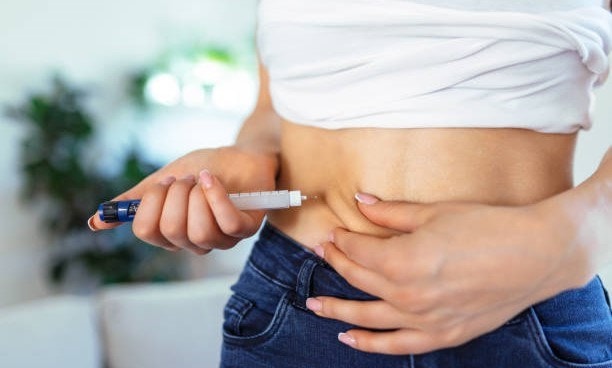Probiotics for Diabetes
Growing research continues to demonstrate that the gut microbiome plays a pivotal role in type 2 diabetes. Probiotics can help to modulate the immune system by correcting underlying inflammation which can accelerate diabetes and lead to long-term health complications. Improving metabolic function and the overall state of the gut microbiome encourages the diversity and growth of beneficial bacterial species which have been shown to lower fasting blood sugar. To find out more about the role our gut microbiota play in our metabolic health, please see: Do gut microbes hold the key to better metabolic health?
In this article, we will look at:
- What is diabetes?
- Are probiotics good for diabetics?
- Should you be taking probiotics for diabetes?
- Can analysing the gut microbiota predict diabetes risk?
- Which probiotic is best for diabetes?
- Key takeaways
What is diabetes?
Diabetes is a disease whereby the body's ability to regulate blood glucose is compromised. It is one of the fastest-growing diseases in the UK and it’s estimated that by 2025, 5 million people will have diabetes in the UK1.
Type 1 diabetes is an auto-immune condition usually occurring in younger individuals, where the body's immune system attacks and destroys the insulin producing cells. This may also be referred to as insulin-dependent diabetes as the body is not able to produce insulin, so it must be taken. Type 2 diabetes is far more common, making up over 90% of adults with diabetes in the UK and is due to the body not producing enough insulin to regulate blood glucose or not being able to use the insulin that is produced (insulin resistance). This type of diabetes is thought to be correlated to our modern diet and lifestyle.
Health professionals can head over to the probiotics learning lab to find out more, and read our article: Probiotics: do they work, and where’s the evidence?

Are probiotics good for diabetics?
There is currently no evidence to suggest that diabetics should not take probiotics or that they are unsafe for diabetics. However, diabetics do need to be aware of any naturally occurring or added sugars that may be present in some probiotic supplements. Some probiotics may contain prebiotics such as fructooligosaccharides (FOS), which are a type of fibre (non digestible), so do not influence blood sugar levels. However, if a sugar such as fructose was present, diabetes should factor this into their daily intake.
There are different types of prebiotics, for example, Fructooligosaccharides (FOS) which are non-digestible, so do not influence blood sugar levels and therefore would not need to be considered by diabetics.
However, in some supplements, fructose is added to ensure an even distribution of bacteria and prebiotics. Fructose is a sugar and therefore diabetics may need to factor this into their daily intake of carbohydrates, especially if taking multiple supplements each day.
Please read the following article to learn more about the clinical trials that have been conducted linking probiotics to better health outcomes: Probiotics: do they work, and where’s the evidence?
Should you be taking probiotics for diabetes?
Emerging evidence suggests that changes in the gut microbiota might also play an important role in the development of human metabolic disease. Due to this growing research, it is certainly worth incorporating a live bacteria supplement into your daily regime.
It is thought that metabolic disease may occur through a mechanism that is linked to increased gut permeability, which can cause systemic low-grade inflammation. Probiotics can help support many of the mechanisms linked to intestinal permeability, which is thought to drive metabolic disease. For more information, please see: Could probiotics help with leaky gut?
Another way in which probiotics are known to help with metabolic health is that they increase the secretion of an intestinal hormone called glucagon-like peptide 1 (GLP-1)2, which is critical for stimulating insulin secretion, and enables the proliferation and regeneration of pancreatic beta cells that synthesise, store and release insulin.
A study from 2015, found that after just 90 days of probiotic consumption, diabetic rats were able to reduce their blood glucose levels in a similar way to the healthy rats3 (meaning that they were better able to produce insulin). Interestingly the blood glucose levels in the healthy rats remained unchanged because those rats were already managing their glucose and didn’t need more insulin.
Another study4 conducted in 2015, found that probiotic supplementation with (Lactobacillus casei) may be useful in preventing insulin resistance caused by excessive consumption of high-fat foods. The main finding of the study was that supplementation with the LcS probiotic preserved glycaemic control and maintained the action of insulin. These studies suggest that intervention with beneficial bacteria can help balance insulin levels in both animals and humans. However, more research is needed as researchers couldn't be sure as to the exact mechanism of how this was taking place.
Can analysing the gut microbiota predict diabetes risk?
Did you know our bodies are home to more bacterial cells than human cells? Scientists have begun to analyse the significance of the symbiotic relationship, and more specifically; the impact that the bacteria have on our metagenome – the entire collection of genes from ourselves and the microorganisms we share our body with.
It is well documented that those with type 2 diabetes have an entirely different composition of gut microbiota than healthy people5. This over the years has led researchers to develop a new model for early diagnosis, with better predictive value than the model used currently, which uses body-mass index and waist-hip ratio.
This study suggests that by examining the patient’s gut microbiota, we can predict which patients are at risk of developing diabetes. The question is – does the composition of the gut microbiota promote the onset of age-related diabetes? If this is the case, this would indicate new opportunities to prevent disease.
Further studies have been conducted to support this theory, suggesting that the composition of intestinal bacteria changes over time in a negative way in those people who are pre-diabetic and this could therefore possibly be a predictor of diabetes6. In this particular study, researchers found that the men whose blood sugar control was stable during the study had more gut bacteria that are considered beneficial for metabolic health. On the other hand, those who were pre-diabetic didn’t have such a healthy microbiota, or with fewer healthy bacteria and more harmful bacteria6 (often referred to as dysbiosis) which is an imbalance of gut bacteria. Furthermore, the men who had improved glucose control over the course of the study were found to have higher levels of Akkermansia, which is again associated with better metabolic health.
What these studies show us is that although there has been previous research linking the balance of our gut bacteria with type 2 diabetes, this is the first piece of research to suggest that the alteration in the composition of our gut bacteria can be seen in the early stages of diabetes, or pre-diabetes. Going forward future studies need to be conducted to determine if it is the changes in gut bacteria that can affect the development of type 2 diabetes. Otherwise, we will not know If the changes simply reflect that the person is suffering from type 2 diabetes.

Which probiotic is best for diabetes?
We know that an altered gut microbiota can contribute to the development of type 2 diabetes. Fascinating research has emerged to show that Metformin a widely available drug used to treat type 2 diabetes has been shown to increase levels of a commensal bacteria within the gut called Akkermansia muciniphila. This bacterium, as mentioned previously is associated with reduced inflammation and improved metabolic health. This once again demonstrates that the gut microbiota plays a crucial role in type 2 diabetes. 7, 8
Several probiotics have been shown to possess antidiabetic effects, such as Lactobacillus and Bifidobacterium because they improve biomarkers of inflammation and oxidative stress and lower fasting blood glucose by promoting an anti-inflammatory gut microbiota, which we know is linked to better metabolic health. 9, 10, 11.
Interestingly prebiotics have also been shown to support those with diabetes. In one study participants who had recently been diagnosed with type 1 diabetes were given high amylose starch which was shown to alter the gut microbiome profile, increasing the production of health-promoting compounds called short-chain fatty acids (SCFA). This resulted in improved glycemia, insulin sensitivity, and secretion.12 This increase in gut bacterial diversity demonstrated improved glycemia just after four weeks of prebiotic consumption. For more information on this, please read: Uses of prebiotics.
Key takeaways
We have covered a lot in this article, so here is a summary of the main points:
- It is well documented that those with type 2 diabetes have an entirely different composition of gut microbiota than healthy people.
- Examining the gut microbiota, could predict an individual’s risk of developing diabetes.
- Several probiotics have been shown to possess antidiabetic effects.
- Prebiotics have also been found to positively affect metabolic health by improving insulin sensitivity.
For further related reading, you might be interested in one of the following articles:
A look at zonulin and leaky gut syndrome
Gut Bacteria, Obesity & Mental Health
References
- https://www.diabetes.org.uk/Documents/About%20Us/Statistics/Diabetes-key-stats-guidelines-April2014.pdf
- Ya Li. (2022). The effects of probiotic administration on patients with prediabetes: a meta-analysis and systematic review.
- Duan FF, Liu JH, March JC.(2015) Engineered Commensal Bacteria Reprogram Intestinal Cells Into Glucose-Responsive Insulin-Secreting Cells for the Treatment of Diabetes. Diabetes. Published online January 27
- Hulston C J, Churnside A A, Venables MC (2015)Probiotic supplementation prevents high-fat, overfeeding-induced insulin resistance in human subjects British Journal of Nutrition, Published online: 29 January 2015
- Bäckhead, F. et al (2013) Gut metagenome in European women with normal, impaired and diabetic glucose control. Nature.
- Ciubotaru I, et al “Significant Differences in fecal microbiotia are associated with various stages of glucose tolerance in African-American male veterans” ENDO 2015; abstract FRI-597
- Qin, J. et al (2012) A metagenome-wide association study of gut microbiota in type 2 diabetes. Nature, publish online ahead of print.
- Hao Wu (2017) Metformin alters the gut microbiome of individuals with treatment-naive type 2 diabetes, contributing to the therapeutic.
- Jacobo de la Cuesta-Zuluaga (2017) Metformin Is Associated With Higher Relative Abundance of Mucin-Degrading Akkermansia muciniphila and Several Short-Chai. National Library of medicine.
- Kaveh Naseri. (2018). Probiotics and synbiotics supplementation improve glycemic control parameters in subjects with prediabetes and type 2 di. National Library of Medicine.
- Hui Juan Zheng a (2019) The effect of probiotic and synbiotic supplementation on biomarkers of inflammation and oxidative stress in diabetic pat. Pharmacological Research. 142(0), pp.303-313.
- Heba Ismail. (2022). LBSUN309 The Effect Of Prebiotics In Newly Diagnosed Youth With Type 1 Diabetes (T1D). National Library of Medicine.